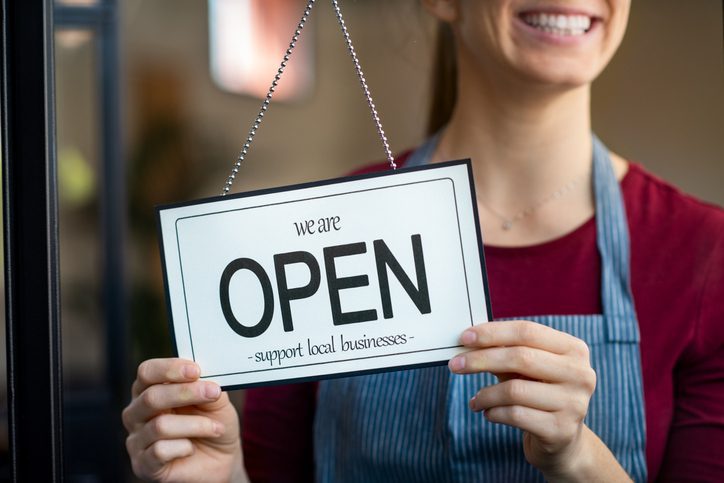[Editor’s note: This is a guest post from Ryan Metcalf, Head of Public Policy & Social Impact at Funding Circle.]
The Paycheck Protection Program (PPP), with the help of fintech lenders such as Funding Circle, successfully provided U.S. small businesses experiencing extraordinary financial challenges during the COVID-19 pandemic with nearly $800 billion in critical funds. The positive impact of the program on Main Street was undoubtedly significant, helping business owners keep their doors open and their employees on payroll. Additionally, the American Rescue Plan Act allotted $10 billion to fund the State Small Business Credit Initiative (SSBCI) over the next nine years, dedicating more money to continue to help small businesses recover and grow.
Following the PPP, the government should consider three key changes that will ensure the billions of taxpayer dollars invested in these programs effectively reach small businesses, including those in underserved communities nationwide, and are protected from fraudulent abuse.
Change #1: Adopt Application Programming Interface (API) technology
In 2019, Congress passed the Taxpayers First Act requiring the Internal Revenue Service (IRS) to develop an automated system to receive third-party income verification forms (4506-T, now 4506-C). This system is intended to replace the current system, which relies on semi-secure fax. The 4506-C form allows taxpayers to give their permission to the IRS to send a summarized transcript of their tax returns to an authorized third party (i.e., SBA or lender). The IRS has already been accepting e-signatures since 2011 and is able to send 4506-C tax data to third parties online, although in an extremely limited capacity.
What is needed is the execution of the Taxpayers First Act and adoption of the API technology, which are programs that instantly transfer data. Adoption of the API would allow the IRS to send data to lenders, with taxpayer permission, instantly and securely, rather than waiting days or weeks for paper processing. Lenders use that data to verify the authenticity of tax returns and financial information. If the standard delay, spanning from two to eight days, was replaced by instant processing, tax data could also be used for instant validation of the true identity of the applicant for verified credit decisions. This would vastly expand access to and the speed at which deserving Americans are able to access credit. The technology would also eliminate the potential for fraudulent manipulation of the program.
The IRS should prioritize the implementation of the API and ensure financial institutions are included in the Agency’s Income Verification Express Service (IVES) working group so the technology is usable by the entire lending industry and for both public and privately funded credit support programs.
Change #2: Lift the SBA moratorium on Small Business Lending Company (SBLC) licenses for the 7(a) program
Fintech lenders facilitated more PPP loans to the smallest of small businesses, businesses located in low-moderate income areas and minority owned businesses than any other category of financial institution. In fact, fintech lenders served more than double the number of small businesses served by community financial institutions (CFI) and more than the number served by credit unions, farm credit unions, and business and industrial development companies (BIDCOs) combined.
The New York Federal Reserve recently published a study that concluded, “Although fintech lenders had a small share of PPP loan volumes, they likely served borrowers who would not have received loans otherwise. Applicants who approached fintech lenders for PPP loans were more likely to lack banking relationships, be minority owned, and have fewer employees. Moreover, a higher share of applications by Black-owned businesses were approved by fintech lenders as compared to firms with white, Asian, or Hispanic owners.”
However, currently, non-depository fintech lenders that are subject to regulation by a state(s) are not permitted to offer 7(a) loans nationwide due to a 1982 moratorium on the issuance of Small Business Lending Company (SBLC) licenses. The SBA should lift the self-imposed moratorium, and Congress must ensure the agency has adequate resources to manage the supervision of additional lenders and volume in the 7(a) program.
In doing so, fintech lenders can help the SBA reach its goals in supporting underserved small businesses, ensuring a more equitable and quicker economic recovery.
Change #3: Ensure the State Small Business Credit Initiative (SSBCI) leverages the best distribution resources and responsible lending practices
Beginning in 2021, Congress has authorized the Department of the Treasury to provide up to $10 billion to states, territories and tribal governments over the next nine years in support for small business capital and technical assistance programs, as part of the response to the economic impact of the COVID-19 pandemic.
The intent of the SSBCI is to fund a complimentary set of programs that fill gaps in existing small business credit support programs. Since non-depository fintech lenders that are subject to regulation by a state(s) are disproportionately helping underserved communities and are not currently permitted to offer non-PPP SBA 7(a) guaranteed loans nationwide, the Treasury should leverage fintech lenders (including but not limited to lenders in origination partnerships with banks) in its Capital Access Programs (‘CAPs’) and other credit support programs.
Lastly, in addition to leveraging fintech lenders for distribution, Treasury should take this opportunity to protect small businesses and increase the efficiency of the program by incorporating into the program the Small Business Borrower Bill of Rights, the highest industry standards and practices for responsible lending.
Why these three changes?
The impacts of these independent changes are complementary. The IRS implementation of the API technology would serve to better protect critical 7(a) and SSBCI funds from fraudulent activity, reduce the fixed costs of making loans—especially for smaller dollar loans—and increase the access to and speed in which capital is distributed. Participation of fintech lenders in these programs would help ensure underserved borrowers have a fairer chance of accessing funds through the streamlined process. The less fraud, more efficiency and greater scale of distribution make for a more equitable and quicker economic recovery for the entire country.


